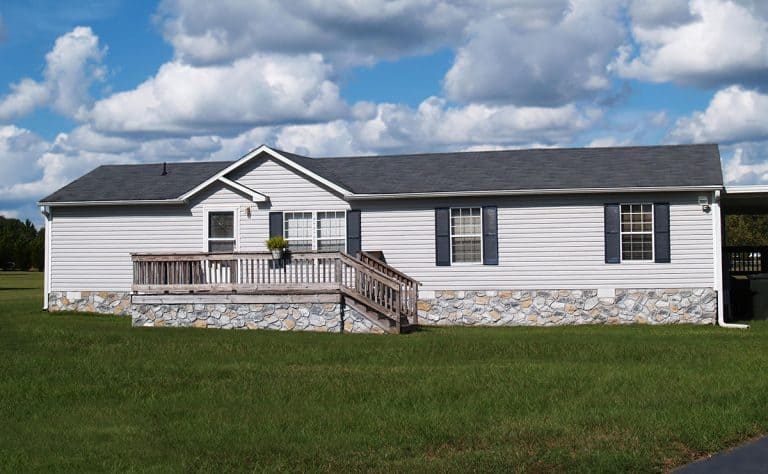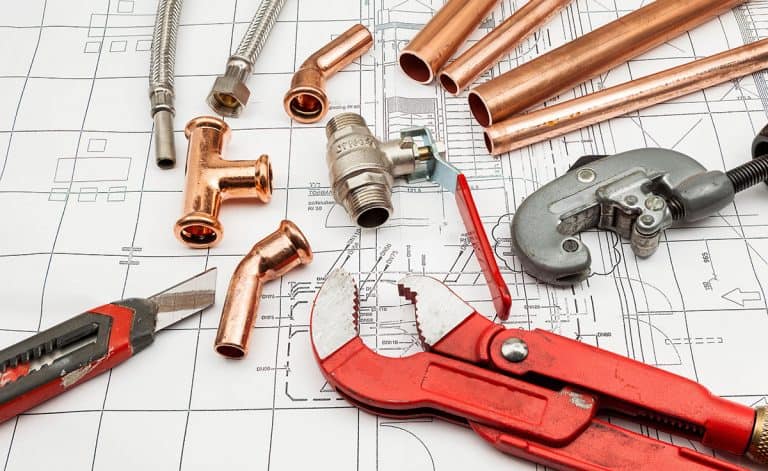The 6 Best AC Units For Van Life
When you travel all over the country in a van, you definitely need air conditioning. What are the best AC units for van life? There are many ways to keep your van cool in hot weather. However, none of them work as well as an air conditioner. Fans just aren’t enough on a very hot day.

What’s the best AC unit to install in a van?
The best AC unit for vans is the Atwood Air Command, which is a somewhat expensive but very effective model. The Dometic Brisk II and the Dometic Penguin II are also good if you want something powerful. The Zero Breeze Portable Air Conditioner is great if you want something small and light.
Some air conditioners are small, portable, and only good for cooling part of your RV. Others are large, powerful, and can keep your entire van cool. Some of them send cold air through your duct system.
I have tried several different air conditioners over the years and have talked about which ones are the best with other RVers. Some are certainly much better than others. Some companies sell unreliable or overpriced air conditioners.
Types of Air Conditioners
Roof AC Units
Roof-mounted air conditioners are the most common type of air conditioners used in RVs including vans. They suck in the air near the ceiling, cool it, and blow it back down. This works quite well because hot air rises and cold air sinks.
Roof-mounted air conditioners are the most popular. They use a lot of power, you can easily still run them at a campground with electricity, using a generator, and sometimes using solar panels.
Window AC Units
Window air conditioners can work just as well inside vehicles as they do in homes. The layout of your van has to be right for a window air conditioner to work, but they definitely work in vans. If your layout isn’t right, don’t try to use a window AC unit.
Another disadvantage is that an air conditioner sticking out of the side or back of your RV doesn’t look good at all. Air conditioners also take up room in your RV. However, window AC units are powerful and can easily keep a small space like your van cool.
Portable AC Units
Since keeping a small space like your van cool is much easier than keeping a large space like a house cool, a small portable unit is often good enough. If you are living in a very hot area and will be using your AC constantly, a full-sized air conditioner is better. However, a small portable one is great for occasional use.
Standard portable air conditioners are designed for use in homes, not vehicles. This makes them tricky to use in vans, and it might take a few tries and some thought and effort to make it work. They have to vent out a window, and it may be a hassle to set it up in your van.
An easier idea is to use a camping air conditioner. You still need to vent these, but it is easier to do that than with a standard portable air conditioner. Camping air conditioners are not all that powerful, but they can be good enough in a small space like a tent or van.
Do All AC Units Need to Be Vented?
Yes, you pretty much always have to vent a portable air conditioner for it to work well. Claims that a portable air conditioner will work perfectly fine even if it is not vented are not realistic. An air conditioner must pump hot air out of your RV, so it must be vented to work.
Some Air Conditioners Use Your RV’s Ducts
Many recreational vehicles including some larger conversion vans have ducts in the walls and ceiling. A ducted air conditioner uses your duct system to distribute cool air all over the vehicle. If your van doesn’t have ducts, you will need a non-ducted air conditioner.
Ducted air conditioning systems are better because they work faster. A non-ducted air conditioner won’t cool off the air in your van nearly as quickly.
Air Conditioning is Necessary
Even if you are in a northern state, there will be some very hot days in the summer. Despite all the other ways of keeping your van cool (fans, vented windows, shade) you need air conditioning.
It is especially important in hotter parts of the country. On some days, running a fan and opening a window just won’t be enough to keep you cool.
What Does BTU Mean?
Air conditioners have their cooling power measured in BTU. BTU stands for “British thermal unit” and measures either heating power or cooling power.
Sometimes, it only takes 20 BTU per square foot to keep an area cool. However, it can take a lot more than that if you are in a van on a hot, sunny day. Your air conditioner has to fight against the heat the sun generates.
For example, a zero breeze air conditioner (2300 BTU) is recommended for an area of 25-40 square feet. This is only enough to cool a part of your van, and not all of it. You can use this BTU calculator to get a rough idea of what it takes to keep a space of a certain size cool.
The Best Air Conditioners for Van Life
Zero Breeze Portable Air Conditioner
Reasons to Buy
- Light and portable
- Very reliable
- Powerful for how little energy it uses
- Does not require a generator
- Doesn’t take up much space
Drawbacks
- Not powerful enough to keep your entire van cool
The zero breeze is great if you want a small, portable air conditioner for occasional use. It only produces 2300 BTU, but that is enough for a large room in your van.
The zero breeze is also battery-powered, so you can charge it in your cigarette lighter socket or with a solar panel. The zero breeze is also highly efficient.
It runs on only 240 watts, so you can cool your van for much less energy than a less efficient or unnecessarily large machine uses. The zero breeze is also compact, which is great as space is always scarce in a van, even a large one.
The Zero Breeze Works Without a Generator
While I strongly recommend taking a generator with you, not everyone brings one. If you neither have a generator nor are in an RV park with power, you can still use the zero breeze. All you need is batteries or a solar panel.
Venting the zero breeze is also easy. There is a hose to vent the hot air, so all you have to do is open a window a little and put the hose out.
Everything Included Is High-Quality
Everything that comes with your zero breeze is well-made and built to last. You can charge and use up the battery 500 times before it is no longer usable. The venting hose, power adapter, and remote control all work properly.
Dometic Brisk II Air Conditioner
Reasons to Buy
- Works either with or without ducts
- Powerful
- Light and efficient
- Works with useful accessories
Disadvantages
- Not quite as powerful as some other models
The Dometic Brisk II air conditioner is great if you want something more powerful. It is mounted on your roof and delivers 13500 BTU of cooling power.
The Brisk II can be installed as either a ducted or a non-ducted AC unit. It works great if your van has ducts, and it is also designed for ductless RVs. It fits the usual 14×14 vents in RVs.
The Dometic Brisk II is also light and efficient. It is better than previous models – 19% lighter while providing 15% more airflow.
Dometic Sells Accessories
Dometic also makes many accessories for their air conditioners, which are sold separately. You can get an air distribution box, air return grill, or a special thermostat from Dometic.
All of these accessories are compatible with the Dometic Brisk II. I have tried the air distribution box and it works very well.
The Dometic Brisk II is also surprisingly small for its power. It uses new, high-tech materials to make it very compact without sacrificing cooling power.
Dometic Penguin II 15K
Reasons to Buy
- Quiet, especially for its power
- 15000 BTU
- Works with or without ducts
- Minimizes wind resistance
- Foam rather than sheet metal for insulation
Disadvantages
- Somewhat heavy and expensive
If you don’t like the noise that some powerful air conditioners make, the Dometic Penguin II offers 15000 BTU of cooling power while being a quiet model. The Dometic Penguin II also fits into standard 14-inch by 14-inch ducts and will work without ducts.
It is amazing what 15000 BTU of cooling power can do if you are used to weaker AC units. 15000 BTU is often more than enough to cool an entire large conversion van. Especially if you have ducts, it cools your RV evenly and quickly.
The Dometic Penguin II Minimizes Wind Resistance

A disadvantage of a rooftop-mounted AC unit is that it adds to wind resistance. Everything you put on top of your RV slows you down a little by creating drag.
If you put a couple of things on top of your RV, such as a satellite dish as well as an air conditioner, this can raise your gas consumption noticeably. You will still be able to drive fast, but your engine will have to work harder at the same speed.
The short height and aerodynamic design of the Dometic Penguin II minimize drag. Air will smoothly flow over your air conditioner without slowing you down.
Foam Rather than Sheet Metal as Insulation
The Dometic Penguin II uses high-tech foam, and not sheet metal, as insulation. This works better, minimizes noise, and makes the Penguin more durable as foam works as padding. The foam also helps make the Penguin quieter than other large RV air conditioners.
ASA Electronics Advent Air
Reasons to Buy
- Relatively light at 50 pounds
- Very durable
- Three fan speeds
- Doubles as an electric heater
Disadvantages
- Not for RVs without ducts
The ASA Electronics Advent Air is quick and easy to install. It is lighter than usual, and the installation is still quick and easy.
The ASA Advent Air has three different fan speeds, so you can put the fan on low if you don’t need to run it on full power. This lets you save electricity or generator fuel. Since the ASA is powerful, it often keeps your RV cool even on a lower fan setting.
The ASA Advent Air is a ducted air conditioner, so you need to have standard 14×14 ducts to install it properly. It has a rigid metal base and foam padding to make it durable. The ASA has a robust 2-year warranty.
The ASA Doubles as a Heater
The ASA also comes with a heat strip, which allows you to use the ASA air conditioner as a heater if you travel to a colder area. A heat strip turns your air conditioner into a small electric furnace.
Not everyone uses the heat strip, but it is great to have. If you live in hotter parts of the country, you might occasionally and unexpectedly encounter cold weather. The heat strip works wonders if you suddenly find yourself cold and don’t have a heater.
Midea Portable Air Conditioner and Dehumidifier
Reasons to Buy
- Works as a dehumidifier and air filter
- Lots of options and settings
- Adjustable timer
- Quiet
Disadvantages
- 8000 BTU is not as good as what many roof-mounted AC units offer
Since humidity can be a problem in hot climates, you may want an air conditioner that doubles as a dehumidifier. A hot but dry day can be enjoyable, a hot and humid day is very unpleasant.
An air conditioner that doubles as a powerful dehumidifier can protect you from this hot and humid weather. It offers 8000 BTU of cooling power, which is great for a relatively light and portable unit.
The Midea is easy to use and has clear digital controls. There is an LED display, a remote control (batteries helpfully included), and a 24-hour programmable timer. The company claims that the 8000 BTU Midea is good enough for 350 square feet, much more than enough to cool your entire RV.
The Midea Works as an Air Filter
Since the inside of your RV can get dusty even if you keep it clean, an air filter can make your RV more livable. The Midea includes a removable and washable air filter that minimizes dust in your air. As long as you wash it once a week, it works excellently.
It Offers a Lot of Options
The Midea lets you choose between dehumidifying, cooling only, or fan only. It cleans the air while doing any of these other things, and you can set the temperature to anywhere from 62 to 90 degrees. The remote control works great and lets you control the unit from across the room.
Atwood Air Command
Reasons to Buy
- Uses relatively little electricity for its cooling power
- Durable
- Strong warranty
- 15000 BTU
- Works as a dehumidifier and can remove condensation
- Great air circulation
- Includes a heat pump
- Great for places with sudden temperature changes
Disadvantages
- Fairly expensive
- Only for vans with ducts
The Atwood Air Command Rooftop RV Air Conditioner is one of the best high-power rooftop air conditioners on the market. At 15000 BTU, it can keep even a large conversion van cool. It requires ducts, so it is not for every van.
For something with so much cooling power, it doesn’t use a huge amount of electricity. This means that you can often run other appliances while you are running the AC. That makes the Atwood Air Command better than any other air conditioner for many people.
You can also use the Air Command as a heat pump (which pulls outside air inside to heat your RV) and as a dehumidifier. The durable hardshell shroud might be enough to protect your air conditioner from an impact. There is also a remote control, a low blower setting, and a 2-year warranty.
Generating Power for Your Van
You will need a reliable and affordable source of power to run your van’s air conditioning. Solar panels today are much more powerful than ever before. They generate many times more power than they did a few decades ago.
However, solar panels do not work on cloudy days. Therefore, you should have a generator for backup power. A lot of the time, solar panels are enough to keep your van running.
Other Ways to Keep Your Van Cool
Air conditioning is not the only way to keep your van cool in the summer. A lot of the time, other methods are good enough and are cheaper.
Seek out Shade
You can use shade to keep your van cool. You will need an air conditioner if you live in a van or travel in one for a long time, but you should not over-rely on it. Use a mix of air conditioning and other ways of keeping your van cool, or the power is too expensive.
Do Fans Keep You Cool?
Yes, fans can work well to keep your van cool in hot weather. Some people underestimate how powerful regular fans are. While air conditioners are more powerful in most ways, a fan can still cool the air.
You can use a fan in addition to or instead of an air conditioner. They do not use nearly as much power as air conditioners do, so you can save money. You might use a fan on most days and turn the AC on during an exceptionally hot day.
Different Types of Fans for RVs
At home, you might use a large fan that turns back and forth to keep a room cool. In a van, that might not be the best idea because space is scarce. Ceiling fans and smaller fans are better.
I always have clip-on fans with me whenever I am in my van. Clip-on fans are portable, so you can take them anywhere and use them however you want. They can keep any part of your van cool.
If you are trying to save as much electricity as possible, there are fans that run on USB power. Phones, laptops, lights, and fans that run on USB power don’t use a lot of electricity. If you want as much cooling power as possible, use both a vented window and a ceiling fan.
Roof Fans Are Effective
Roof fans are often better than regular fans because they pull new air into your RV. The roof fan pulls air in from above your RV, so there will always be fresh, cool air circulating inside it.
If you both open a door/window and run the roof fan, that is often good enough that you won’t need the AC. Air conditioning is necessary for the really hot summer days, but you can do without it comfortably most of the time.
Get Vented Windows
Many conversion vans have vented windows with screens. You can turn a crank to open the window or slide it open. The screen will keep the bugs out, so you can leave your window open all night if you want.
You can often keep your van cool all night without AC if you both run a roof fan and open a vented window. The two together will create airflow within your van that will lower the temperature. Air movement always makes the area cooler.
Moving air can also make the van feel cooler in addition to actually being cooler. While a fan won’t make your RV cooler right away, it will immediately make you feel cooler. The wind can make a hot day milder and a cold day much colder.
How Much Cheaper Are Fans?
Running a fan for most but not all of the day may be several times less expensive than running an air conditioner for most but not all of the day.
A ceiling fan may only use 75 watts, or less than a thousand watt-hours per day, a fraction of what an air conditioner uses. Of course, an air conditioner is more powerful than a ceiling fan, but you don’t have to use the air conditioner on all days. On a day when the temperature is reasonable and only a little hotter than ideal, you can use a ceiling fan instead.
There is Cooler Weather in Other States
I have lived in an RV in states where it gets quite hot in the summer before, so I am not against it. However, taking your conversion van to a cooler part of the country during the hottest months is another option.
One of the best things about living in a conversion van is that you are free to live wherever you want. If you want to escape from very hot or very cold temperatures, you can turn on the engine and go.
Making Your Own Air Conditioner Using a Cooler and a Fan
Believe it or not, you can make your own air conditioner using a cooler full of ice and a fan. These are not as good as real air conditioners, which use better technology, but homemade air conditioners do work. They are not air conditioners in the true sense (an air conditioner works in a completely different way), but they can keep your van cool and they aren’t expensive to run.
A downside of these cooler ‘air conditioners’ is that they often put moisture into the air. Check to see if the air coming out is too moist. If it is, stop using the device, because moisture can lead to a mold problem.
Frequently Asked Questions
How Cool Does Your Van Need to Be?
Different people prefer different temperatures. According to the US department of energy, 78 degrees is right when you are awake and 82 degrees is right if you are asleep. Are those numbers right, or is that too hot?
Many people think 82 degrees at night is too hot, myself included. I would rather keep my van somewhat cooler at night than during the day. Other people recommend 76 degrees during the day and 72 degrees at night, those temperatures are similar to what I prefer.
How Quickly Can AC Cool Your Van?
Air conditioning can cool off your van reasonably fast, but maybe not fast enough if your van is very hot. If you are away from your van for a while on a hot day, it may be very hot when you return to it. It may take a fairly long time for your AC to cool it.
A house does not cool off fast when you turn the air conditioning on. It may take almost two and a half hours to cool a house from 80 degrees down to 72 degrees. While a van can cool off faster because it is smaller, it still takes time.
How Much Can an Air Conditioner Lower the Temperature?
An air conditioner can make the air inside about 20 degrees colder than the air outside. If it is 110 degrees out, you might only be able to keep the indoor temperature down to about 90 or so.
Your air conditioner must first suck in air, then cool it, and then blow it back out again. While this technology works very well, it has its limits.
An air conditioner can’t usually lower the temperature below 60 degrees (not that you would want this), can’t easily make the temperature inside very cool on a very hot day, and can’t always cool off your van quickly.
Can Very Cold Temperatures Damage an Air Conditioner?
Yes, it can sometimes do some damage if you run an air conditioner when the temperature is very cold.
A lot of the time, you can’t set your air conditioner any lower than 60 degrees. However, if you can and do, the lubricants inside your air conditioner may stop working.
If this happens, your mechanical parts may be damaged or wear out faster.
Tips and Suggestions
Put Your Thermostat in the Right Spot
If you put your thermostat in the wrong spot, your air conditioner will run too much or too little.
If you put it near a window, the sunlight may heat it up and make your thermostat measure a high temperature. The thermostat will then run your air conditioner even though it is cool in your RV.
You should put your thermostat somewhere that is neither hotter nor cooler than the average temperature inside your van.
Things not to Do
One thing you should not do is run your van to charge the battery and use the AC. This is loud, is a waste of fuel, produces lots of exhaust, and isn’t even safe. If you keep your van running while it is parked, it is possible that carbon monoxide gas could enter your van and poison you.
Use a generator or solar panels to produce power for your RV. Don’t rely on your car battery and your engine. You can use your van battery to power a small 12-volt fan, but not an air conditioning system.
Don’t Use Mist Fans
Sometimes mist fans work in tents, but I never use them in an RV. They make the air too damp and moist.
They do work to cool the air, but it isn’t worth the moisture they generate. There are many other ways to keep your van cool.
Swamp Coolers Also Produce too Much Moisture
Swamp coolers cool the air in a house or vehicle by adding water to the air. This can cool things down by 5 degrees or even 15 degrees. Swamp coolers are also very cheap compared to air conditioners.
However, swamp coolers produce moisture that leads to mold. A mold problem can be very expensive to fix, so don’t add moisture to the air just for the sake of cooling it. Use a roof fan or turn on the AC instead.




![Are Poplar Logs Good For Log Cabins? [And Why?!]](https://freedomresidence.com/wp-content/uploads/2022/05/Are-Poplar-Logs-Good-for-Log-Cabins-1-768x512.jpg)




